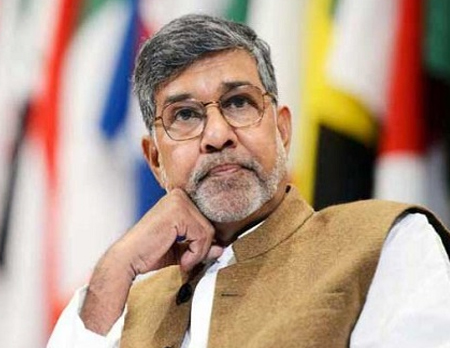At the Global Justice, Love, and Peace Summit in Dubai on 13 April 2025, Nobel Peace Laureate Kailash Satyarthi reflected on India’s enduring tradition of philanthropy. Speaking to an audience of global leaders, activists, and corporate figures, Satyarthi emphasised the growing need for compassion and action in a world marked by inequality and conflict. His speech underscored how philanthropy, deeply rooted in Indian culture, continues to play a pivotal role in addressing societal challenges.
Satyarthi highlighted the historical legacy of Indian philanthropy, citing examples of corporate leaders such as the Tatas, Bajajs, and Godrejs, who have long championed social welfare initiatives. He acknowledged their contributions as part of India’s heritage of giving but cautioned against complacency. “Intent alone is not enough,” he remarked. “If we keep talking about these things without putting them into practice, we end up spending a lot of energy, way more than what we get back in return.” His call to action resonated with the summit’s theme of integrating love, justice, and peace into global efforts for change.
The Nobel Laureate also praised the summit’s symbolic naming, noting that it encapsulated values essential for fostering harmony and progress. He expressed hope that participants would carry forward the message of compassion and collaboration to create a more equitable world. Satyarthi’s remarks served as both a celebration of India’s philanthropic spirit and a reminder of the work still needed to translate noble intentions into impactful actions.
Corporate Social Responsibility
Satyarthi’s reflections also spotlighted the evolving role of corporate social responsibility (CSR) in India. Over recent decades, Indian corporations have increasingly embraced CSR as a means to contribute to societal development. Organisations like the Kailash Satyarthi Children’s Foundation (KSCF) have partnered with businesses to channel CSR funds towards initiatives aimed at eradicating child labour, trafficking, and other forms of exploitation.
The KSCF has worked closely with corporate leaders to implement sustainable community projects and sponsor child-friendly villages across India. By leveraging CSR funds effectively, these collaborations have empowered underprivileged children through education, healthcare, and livelihood opportunities. For instance, companies supporting KSCF have helped establish Bal Mitra Grams (Child-Friendly Villages), which serve as models for holistic child development.
Satyarthi’s advocacy extends beyond financial contributions; he emphasises ethical practices and long-term commitments from corporations. His vision aligns with global efforts to integrate social responsibility into business strategies, ensuring that economic growth benefits all sections of society. As he noted during the summit, “Philanthropy must be transformative rather than transactional.”
India’s corporate sector has responded positively to this call for action. Leading companies have not only increased their CSR budgets but also aligned their initiatives with broader goals such as those outlined in the United Nations Sustainable Development Goals (SDGs). This alignment has amplified the impact of philanthropic efforts, addressing systemic issues like poverty and inequality while fostering sustainable development.
In conclusion, Kailash Satyarthi’s reflections at the Dubai summit highlighted both the rich tradition of Indian philanthropy and the critical role of corporate leaders in driving meaningful change. His message serves as a powerful reminder that while intent is important, it is action that ultimately transforms lives. By building on this legacy and embracing innovative approaches to giving, India can continue to lead by example in creating a more compassionate and equitable world.


